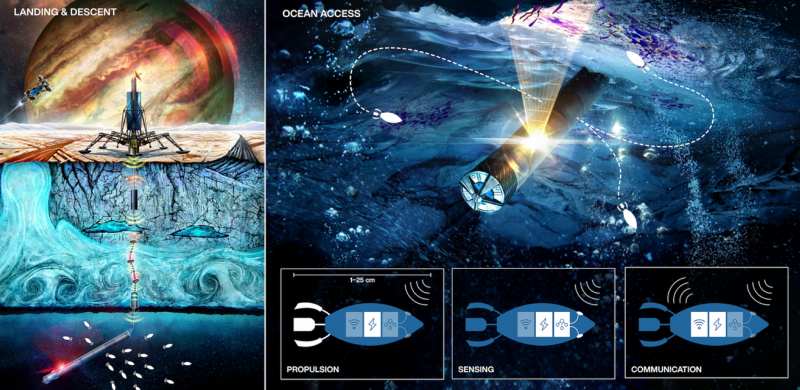Space technology has come a long way since the launch of Sputnik in 1957. As a result, advancements in space technology have helped us better understand our universe, explore other planets, and make breakthroughs in science and technology. However, the question remains: what’s coming next in space technology?

And more importantly, why should you care? In this blog post, we’ll delve into the future of space technology and examine its implications for the future of humanity.
Table of Contents
The Future of Space Technology Key Points:
The future of space technology is focused on three key areas: exploration, colonization, and commercialization.
Private companies such as SpaceX and Blue Origin are driving innovation in space technology and making space more accessible than ever before.
Emerging technologies such as 3D printing and artificial intelligence are revolutionizing the way we design and build space technology. The benefits of space technology extend beyond space exploration and can impact industries such as agriculture, transportation, and communication.
The Future of Space Technology Exploration
Exploring our solar system and beyond is one of the main goals of space technology. NASA’s Artemis program plans to land the first woman and next man on the moon by 2024 and establish a sustainable presence on the moon by 2028. In addition, NASA is planning to send humans to Mars in the 2030s. These missions will help us better understand the history of our solar system and could potentially lead to discoveries that could impact our understanding of life on Earth.
Colonization
Colonizing other planets is another area of focus for space technology. While it may seem like science fiction, private companies such as SpaceX and Blue Origin are making significant progress in developing technologies that could help humans colonize other planets such as Mars. Elon Musk, founder of SpaceX, has stated that his ultimate goal is to establish a self-sustaining city on Mars.
Commercialization
Space technology has significant commercial potential. Private companies are already using space technology to develop new products and services, such as satellite-based internet and asteroid mining. As space technology becomes more accessible, we can expect to see even more commercial applications in the future.
Emerging Technologies
Emerging technologies such as 3D printing and artificial intelligence are revolutionizing the way we design and build space technology. 3D printing allows us to manufacture complex parts on demand, reducing the cost and time required for traditional manufacturing methods. Artificial intelligence can help us analyze vast amounts of data collected from space, leading to new discoveries and breakthroughs.
Impact on Industries
The benefits of space technology extend beyond space exploration. Space-based technologies can impact industries such as agriculture, transportation, and communication. For example, satellite-based imagery can help farmers better understand their crops and make more informed decisions. Satellite-based communication systems can provide internet access to remote areas of the world, connecting more people to the global economy.
Why You Should Care?
The future of space technology is exciting and full of potential. Space exploration and colonization could lead to groundbreaking discoveries that could impact our understanding of the universe and life on Earth. Commercial applications of space technology could create new industries and products that could benefit humanity. And emerging technologies such as 3D printing and artificial intelligence could revolutionize the way we design and build things, leading to more efficient and sustainable technologies.
Conclusion
The future of space technology is full of potential and could impact nearly every aspect of our lives. Whether it’s exploring the universe, colonizing other planets, or developing new technologies, the possibilities are endless. By keeping an eye on the latest developments in space technology, we can stay informed about the future of humanity and the impact that space technology could have on our world.
